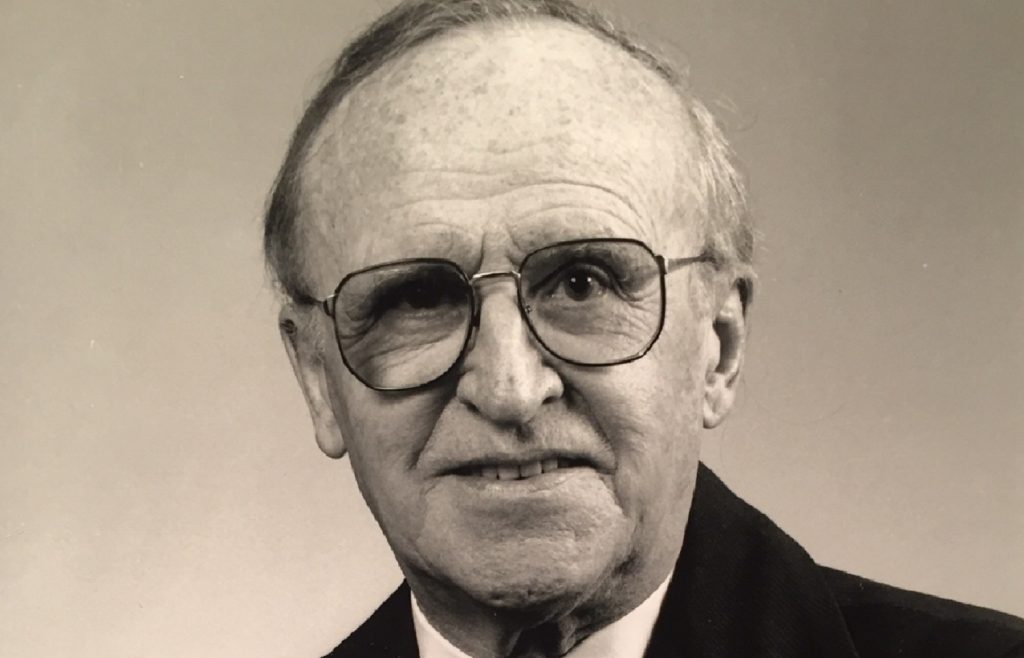
Claude Lavoie was born in Rivière-du-Loup on July 19, 1918. In 1933 he became a student at Collège de Lévis, where he studied the piano and organ with Abbé Alphonse Tardif. In 1942, he won the Prix d’Europe competition and moved to Boston to study with Nadia Boulanger and E. Power Biggs; he also studied at the Longy School of Music in Cambridge and with Francis Finlay at the New England Conservatory.
On returning to Québec in 1945 he became the titular organist of the church in Beauport, where he stayed for fifteen years. He went to Paris in 1950-51 to pursue further studies with André Marchal and Gaston Litaize for organ and Simone Plé-Caussade for music theory. When he returned he succeeded Henri Gagnon as organ professor at the Québec conservatory of music. He taught there for the next twenty-seven years, training a large number of organists of whom several went on to become leading performers and teachers.
In 1959 he accepted the position of titular organist at the Saints-Martyrs-canadiens church in Québec City. He supervised the installation in the church of a Casavant organ to his own design; it marked a milestone in the history of organbuilding in Québec and was the turning-point between the romantic and neo-classical styles. Claude Lavoie played the instrument for the next twenty-five years as the parish’s organist.
Over the course of his career Claude Lavoie gave over 200 solo and orchestral recitals, and performed the opening recitals on around thirty new instruments.
In 1989, Claude Lavoie was able to implement a long-standing dream: the creation of the Foundation which bears his name, crowning his outstanding career as a teacher and performer. It testifies to both his ideals of artistic excellence and his generosity.
Claude Lavoie was named a Knight of the Order of Québec in 1990 by Premier Robert Bourassa. He died in Québec City on April 28, 2014 at the age of 95.
